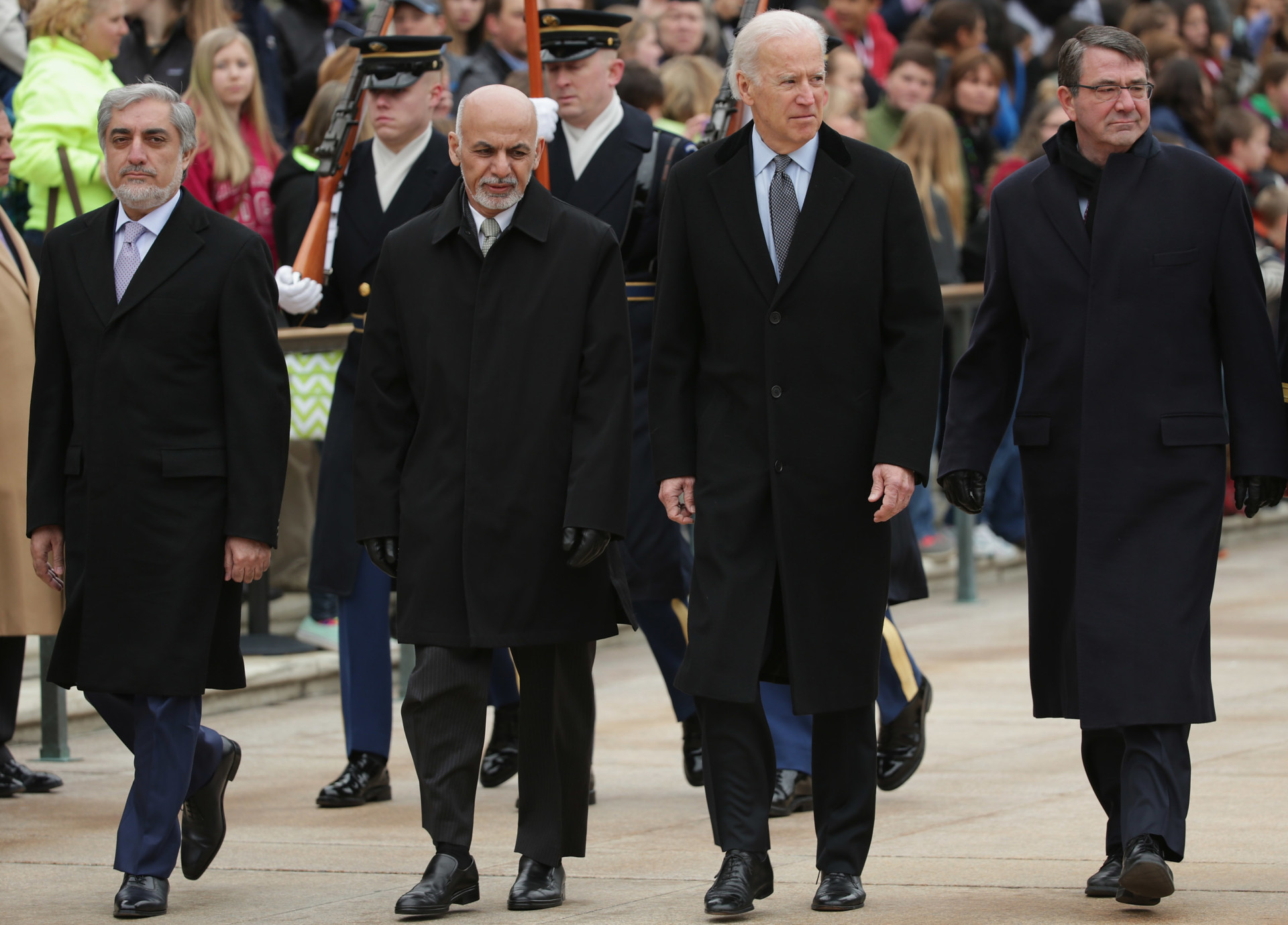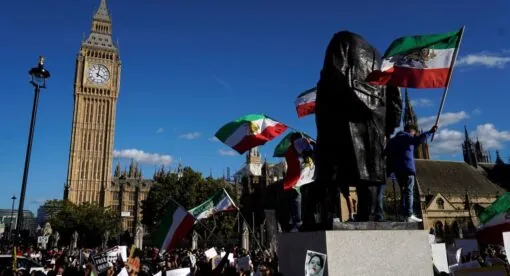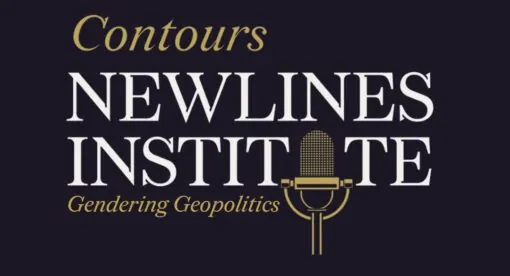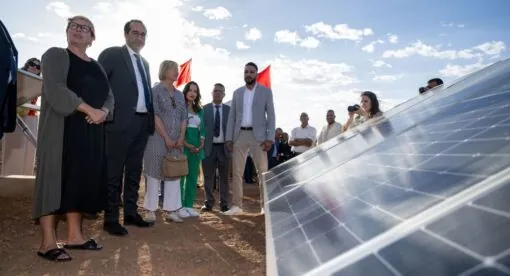U.S. President Joe Biden is meeting his Afghan counterpart, Ashraf Ghani, today – just days after the Wall Street Journal reported that the U.S. intelligence community informed the White House that Afghanistan’s government could collapse within six months of the American drawdown. Washington’s challenge is to complete its military withdrawal while preventing the Taliban from eroding the state and societal progress that the United States spent nearly two decades and about a trillion dollars to painstakingly build. Our senior analysts weigh in on how the Biden administration ought to approach this fragile situation.
The question of moving forward in the wake of U.S. military withdrawal from Afghanistan is not whether the Ghani-led government will lose authority over Afghanistan’s territory. That is already happening and will accelerate as the Taliban seizes more ground throughout the country and as government forces and anti-Taliban militias mobilize to counter the resurgence of the Taliban’s Islamic Emirate. What will determine the future viability of Ghani’s government is whether enough international actors, especially Afghanistan’s more powerful neighbors – Pakistan, Iran, Russia, China, and India – will prefer to maintain a competing, cohesive state-like authority based in Kabul as a counterweight to the Taliban.
It seems increasingly likely that the Taliban aims to reimpose the Islamic Emirate over all of Afghanistan rather than share power in Kabul. Taliban forces are preparing for campaigns on cities when the U.S. military fully withdraws and are working to seize the key lines of trade and humanitarian access into and out of Afghanistan. At the current rate of Taliban advances, there will not be an authority based in Kabul with control over enough military power, or with enough revenue, to prevent the imposition of the Taliban’s Islamic Emirate over most of Afghanistan. To avoid complete catastrophe, Ghani’s government needs angel investment from regional patrons to survive, even though the Afghan state’s survival in the rosiest analysis is that of a loose and fragile collection of fiefdoms strung together by foreign assistance distributed via Kabul.
—Nicholas A. Heras, Senior Analyst & Program Head, State Resilience & Fragility
As the government in Kabul vastly concedes territory to the Taliban in the wake of the U.S. and Coalition withdrawal, the prospects of the Taliban reinstating themselves as a state actor look more likely by the day. This could become a reality that South and Central Asia must come to terms with. Biden has signaled that the U.S. will support peace talks between the Ghani-led government and the Taliban, but with the rapid victories the latter have achieved over the past week alone, gaining concessions from the jihadist group seems unlikely. This jeopardizes peace talks before they start. The U.S. has made it clear that Afghanistan will not loom large much longer as a priority for the current administration. With few options at hand, a new chapter in the painful 40-year civil war is opening as untrained civilians take up arms to fight, and countries like Iran have various opportunities to exploit the fragile security under the pretext of protecting religious minorities.
The U.S. should utilize all its partnerships with mediating states such as Qatar and Pakistan to build some leverage with the Taliban, whether on persuading the group to halt its military advances or obtain guarantees – however small – that minority groups and civil society will not be targets should the Taliban gain control of the country or most of its provinces. What the U.S. should avoid if it plans a clean break from Afghanistan, and that increasingly looks to be the case, is a repeating of Syria’s scenario. Simply arming and financially supporting local forces who will not be able to counter the Taliban’s advances will most certainly lead to greater bloodshed without an end goal.
—Rasha al-Aqeedi, Senior Analyst & Program Head, Nonstate Actors
The U.S. withdrawal from Afghanistan signifies Washington’s broader imperative to refocus its efforts in more conventional theaters and turn the page on Middle Eastern “forever wars” as it prepares to compete with near-peers. But the move also raises important questions about the legacy of the near-20-year U.S. intervention, Afghanistan’s fate after the withdrawal, and the decision’s geopolitical effects in South and Central Asia.
Existing vulnerabilities within the Afghan government, the Taliban’s increasing control, and the abrupt shift in the country’s security landscape will exacerbate Afghanistan’s existing power vacuum. Afghanistan’s rugged geography, diverse demography, and lack of resources to build a viable political economy have made the country prone to disunity, with Talibanized enclaves and ungoverned spaces embedded across the country. The absence of U.S. and NATO forces as a counterweight and as support for the government in Kabul will cause the Afghan government to struggle as intensified Taliban, militia, and warlord influence grows.
On a regional level, Afghanistan’s exacerbated power vacuum could alter the state behavior and imperatives of regional actors. The departure of U.S. and NATO forces introduces new opportunities to Afghanistan’s neighbors, particularly Iran and Pakistan. Iran has celebrated the withdrawal as a “positive move” and will seek limited space to project influence with the Taliban and the Afghan government. Pakistan, too, will have an opportunity to act upon its national interest in securing the disputed Durand Line and position itself as a regional power broker, though it will face the brunt of the spillover effects from the coming chaos. India will also seek to wield influence in Afghanistan to both counter Pakistani influence and advance security interests.
However, post-withdrawal Afghanistan will also introduce increased risks to its regional neighbors, as increased Taliban and insurgent activity create concern over border security, terrorist activity, and spillover violence. Afghanistan’s power vacuum will also translate into an uptick in cross-border illicit networks, weapons and narcotics smuggling, and refugee influxes into the region, just as the Soviet Union’s withdrawal induced after 1989. If Afghanistan’s power vacuum descends into civil war, the country could again become a flashpoint of state intervention and competition among Central and South Asian actors.
—Caroline Rose, Senior Analyst & Program Head, Power Vacuums
It is becoming increasingly clear that Biden is no longer prioritizing Afghanistan in U.S. foreign policy. The no-strings-attached withdrawal signaled to the world Biden’s intention to leave this “forever war” behind for good. In the talks today, Ghani will want assurances that the U.S. will continue to support his government as well as his armed forces. If the U.S. continues its unconditional funding and support to the Afghan National Security Forces, human rights in Afghanistan will continue to take a backseat to assumed strategic benefits and security. Afghanistan is facing major cuts in aid funding, which will have devastating effects on access to health care, human rights, and justice for women and girls – ideals that are not “pet rocks” but are, in fact, fundamental to the stability and future of the country. The U.S. has long focused on the rights of women and girls in the face of Taliban encroachment, and rightly so, but repeatedly has missed the opportunity to highlight the unique harm Afghan boys face from Ghani’s own security forces due to their gender. As the U.S. continues its drawdown and as the Afghan government continues to wage a losing battle against the Taliban, innocent Afghans, especially children, will continue to be caught in the crossfire. The outlook for women, children, and U.S. allies – including translators – is grim.
—Emily Prey, Senior Analyst, Special Initiatives
The views expressed in this article are those of the authors and not an official policy or position of Newlines Institute.










